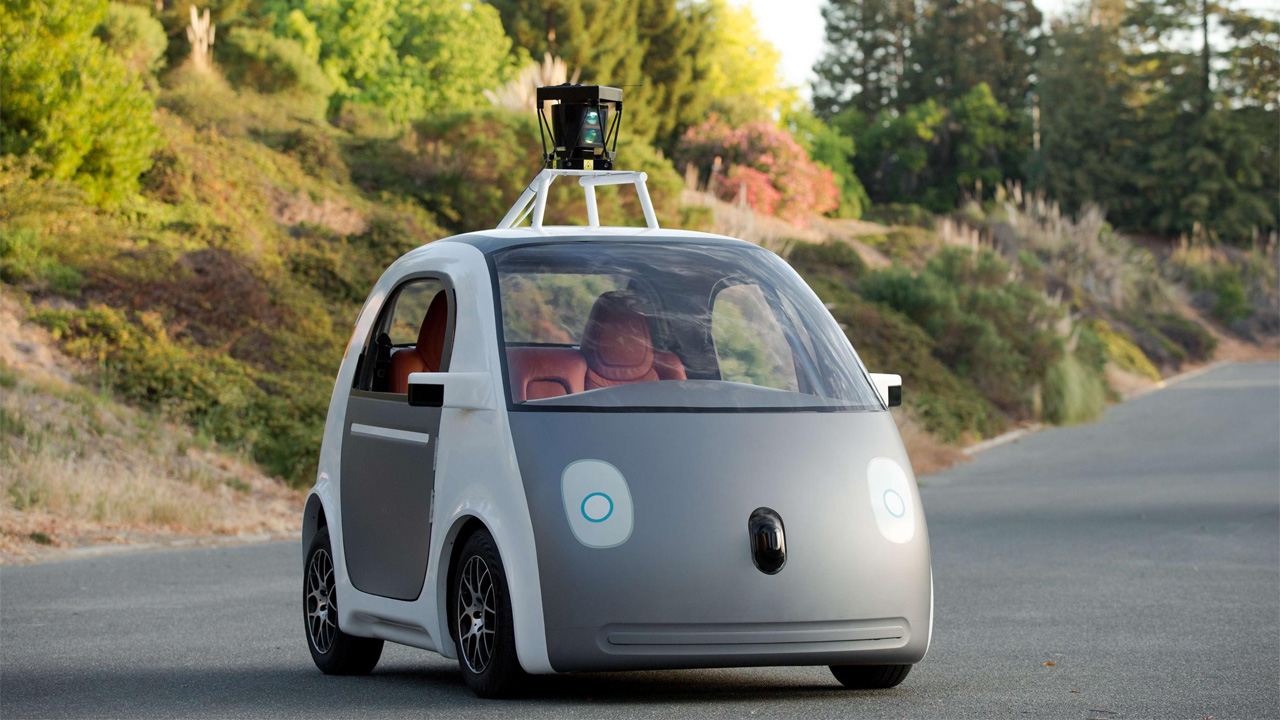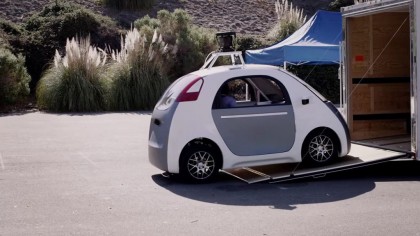Google driverless car hysteria shows humans are too stupid to drive
People just don't 'get' driverless cars

People are hysterical about self-driving cars. They just don't get it. That's what's really interesting about both the design of and the reaction to Google's latest self driving car.
As it happens, there's a fascinating archive episode of Horizon on BBC iPlayer that dates from 1978. It's about computer chips and how they will make us all unemployed.
It basically predicts end of days if we don't stop the computer chip from replacing nearly all of us as workers. It predicts even doctors will be gone soon. There's a similar hysteria surrounding driverless cars right now.
That's despite the fact that from top to bottom, Google's new driverless car is design to allay fears. With its friendly face, it looks like it wouldn't squish a fly. It's limited to 25mph. The front is made of soft foam and the windshield of soft, bendy plastic.
None of that, in my view, has anything to do with actual safety. It's all about reassuring the masses that they're not about to be mown down by a fleet of four-wheeled robotic overlords.
After all, Google's existing driverless cars, based on cars like the steel-bodied Toyota Prius, have been faultless up to now. The only incidents they have been involved with were due to human error, not robo-car malfunction.
Forget about infallibility
That's not to say that Google's technology is infallible. It isn't and it won't ever be. Nor will anyone else's. But it's probably already safer than any human driver. Not that most people can get their head around that notion.
Sign up for breaking news, reviews, opinion, top tech deals, and more.
In fact, reactions to Google's vehicle prove that most people struggle to grasp even the most basic benefits of driverless cars, let alone the more nuanced possibilities. Here are some of the more common misconceptions that people have:
'When the computer crashes, so will you!'
'How will these things know what pedestrians are going to do? They'll have to drive around at a snail's pace to be safe!'
'If they start driving out of town, they'll have to go much faster than 25mph. If they crash they might kill people.'
'Surely it will only work if all cars are autonomous? How will it cope with human-driven cars?'
'They'll have to restrict them to special lanes.'
'Surely it won't be able to see as well as a person?'
'What happens when one breaks down and blocks the road?'
'If two people jump out in front of it, how will it chose which one to run over?'
'Skynet! Terminator! End of days!'

Fearing the future
You get the idea. OK, the last one was, shall we say, heavily edited for brevity. But there's been plenty of mention of a dystopian science fiction future, that's for sure.
A few themes here are pretty common. One is that people are ignoring the safety benefits of driverless cars and the perilous dangers of human-driven cars in equal amounts.
They're concerned about being killed by a driverless car and they're ignoring the fact that around a million people die on the world's roads each year, almost all of them due to human error.
Of course, driverless cars will make mistakes. But if the choice is between a million deaths at out own hands or a few hundred (and probably close to zero) caused by driverless cars, which would you chose?
Loopy logic
There's loads of broken logic being used, too. Some argue that you can't have driverless cars mixed with human-driven cars because humans are so bad and erratic at driving.
But if humans are so bad, how do they cope with each other?
The bottom line is that driverless cars will be much, much more accurately and reliably controlled than human-driven cars. And that includes reacting to poorly-driven human cars.
Technology and cars. Increasingly the twain shall meet. Which is handy, because Jeremy (Twitter) is addicted to both. Long-time tech journalist, former editor of iCar magazine and incumbent car guru for T3 magazine, Jeremy reckons in-car technology is about to go thermonuclear. No, not exploding cars. That would be silly. And dangerous. But rather an explosive period of unprecedented innovation. Enjoy the ride.